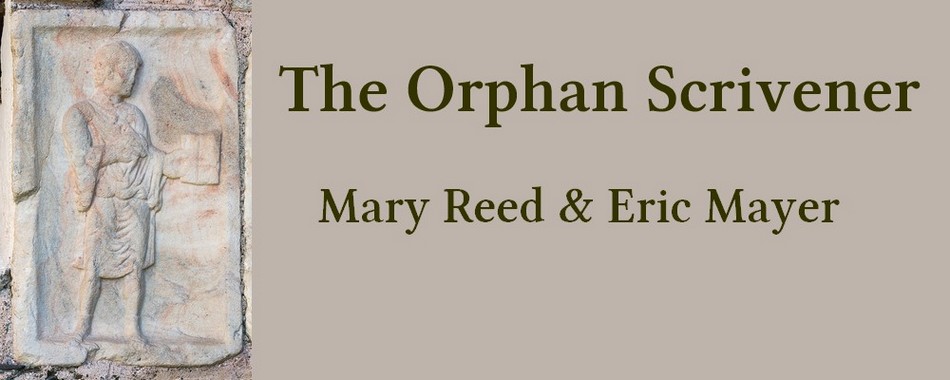MARY'S BIT or THE GRIM REAPER'S LAWNMOWER
We all know how the Grim Reaper is depicted, right? As a skeleton wearing a hooded cloak and carrying a scythe he uses to harvest a life when the time comes, for as is said all flesh is grass. Compared with the shears with which Atropos cuts the thread of life, scythes have a much larger cutting edge, a fact Ray Bradbury used to telling effect in his short story aptly entitled The Scythe. *
Perhaps it's as well Grimmy appeared in the collective unconsciousness wielding one of these extremely sharp agricultural implements before lawnmowers were invented, which Mr Google tells us was by Edwin Budding in Gloucestershire in 1830.
Because sometimes a lawn mower can be difficult to start and Grimmy is a very busy skeleton.
This train of thought came about when reflecting we've had problems getting the mower going the last couple of times it was hauled out. We eventually deduced the difficulty (you know my methods, Watson) was due to either meteorological conditions, mower machinery problems, or, if I may lapse into dialect for a second, manky petrol. Our reasoning was the petrol was purchased just a short while ago so should be usable and the mower must be in order given it attempted to start up a couple of times but could not continue. So the culprit must be meteorological conditions, and why not? They were much as the same as the last time we had attempted to start the mower, given damp air has lingered this past couple of weeks after several frog stranglers arrived between outbreaks of gully washers.
The disappointing thing is our mower was purchased only a couple of years ago, whereas we never had this sort of bother with its two predecessors, one of which was third hand and the other second hand. They built them tough in those days. Our third hander was struck down by a galloping case of rust making it dangerous to operate (a condition which also did in two of our buggies) and the second hander died when its innards failed for reasons unknown.
In any event, yesterday the mower was cutting capers the same way as it did last time. First it would not start at all and so, repeating what worked to get it going when it previously refused to (co)operate, we gave its spark plug a goodly blast of WD-40 and then moved the mower into a patch of direct sunlight to help dry it out. However, this treatment had to be repeated a couple of times even though the mower struggled valiantly to start. Then the starter string got itself messed up and hard to pull to get things moving. After that was untangled, more WD-40 and another pull or three to start the mower revealed, if it came to life at all and the starter string was let out slowly, the engine would continue working.
So our hanky sized lawns are now cut, and since the grass was rather long the occasional lines of heaped grass suggest miniature hay fields.
Which is pretty much where we came in.
* The Scythe was originally published in Weird Tales and has been reproduced at
http://www.unz.org/Pub/WeirdTales-1943jul-00046?View=PDF
AND FINALLY
In the last newsletter we spoke of our engagements in the red-headed woodpecker war. We're now able to give an update but alas, it resembles the curate's egg, which had both good and bad parts. The good: our avian friend's visits ended not long after we attached iridescent streamers to the gutter. The bad: his departure coincided with the end of the nesting season, so it may have been merely coincidental and we shall see him again next spring. Stay tuned!
In the meantime, the next issue of Orphan Scrivener will fly into your in-box on October 15th.
See you then!
Mary R and Eric
who invite you to visit their home page, to be found hanging out on the virtual washing line that is the Web at http://home.earthlink.net/~maywrite/ There you'll discover the usual suspects, including more personal essays, a bibliography, and our growing libraries of links to free e-texts of classic and Golden Age mysteries, ghost stories, and tales of the supernatural. There's also the Orphan Scrivener archive, so don't say you weren't warned! Our joint blog is at http://ericreedmysteries.blogspot.com/ Intrepid subscribers may also wish to know our noms des Twitter are @marymaywrite and @groggytales Drop in some time!
